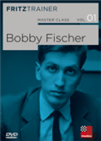Impressions from the early rounds of the European Chess Championship in Petrovac
After participating in last year's European Championship in the Serbian spa town of Vrnjacka Banja, I wanted to repeat the experience this year. Originally, the championships were supposed to take place in Israel in the spring. For well-known reasons, this was not possible, so the tournament was relocated to Petrovac in Montenegro. As in previous years, the tournament is open to all chess players belonging to a European Chess Union. There are no restrictions on playing strength, allowing amateurs like me to take part.
Montenegro is an interesting country with much to offer beyond chess. That's why I decided to arrive two days before the tournament began to explore the country on my own. At the airport, I rented a car and drove to Kotor in north-western Montenegro. I had heard a lot about the town and the bay where it is located, and was not disappointed. The area is stunningly beautiful.

Bay of Kotor
 No other World Champion was more infamous both inside and outside the chess world than Bobby Fischer. On this DVD, a team of experts shows you the winning techniques and strategies employed by the 11th World Champion.
No other World Champion was more infamous both inside and outside the chess world than Bobby Fischer. On this DVD, a team of experts shows you the winning techniques and strategies employed by the 11th World Champion.
Grandmaster Dorian Rogozenco delves into Fischer’s openings, and retraces the development of his repertoire. What variations did Fischer play, and what sources did he use to arm himself against the best Soviet players? Mihail Marin explains Fischer’s particular style and his special strategic talent in annotated games against Spassky, Taimanov and other greats. Karsten Müller is not just a leading international endgame expert, but also a true Fischer connoisseur.On the way to the tournament venue, I stopped at Sveti Stefan. This is a hotel island, made famous in chess circles by the 1992 Fischer-Spassky rematch held here. Unfortunately, the road to the island was closed, so I had to settle for a view from afar.

Sveti Stefan from afar
From there, it was only 10 kilometres to the Hotel Palas in Petrovac. After checking in at the hotel, players could pick up their player passes straight away. These were organised by country, so I had no trouble finding mine.
The weather during the first week of the tournament was magnificent. Even though it was nearly mid-November, it was sunny with summer-like temperatures. The sea was still 20 degrees warm, so I even went for a swim. The pleasant weather also allowed players to prepare for their next games at one of the many cafés right by the beach.

Preparing for the next round with a view of the sea
What strikes me about the games from the championship is how hard the professionals have to fight even against seemingly weaker players. Even a 500-point Elo difference and the first move advantage are no guarantee of an easy victory, as Vasyl Ivanchuk (2640) found out in the sixth round against Ruzgar Odabasi (2114), an 11-year-old talent from Turkey. The following position arose after White's 48th move:
Position after White's 48th move in Ivanchuk v. Odabasi
After Bg7, Black still had good chances to secure a draw. The move Rb2, played in the game, was the first misstep. A few further inaccuracies allowed Ivanchuk to clinch the victory. Readers can find this game, along with all other referenced games, at the end of the article.
Stronger players do not always prevail. The following position is from the first-round game between Etienne Bacrot (2653) and Henry Edward Tudor (2355). After White's 13th move, the position was as follows:
Position after White's 13th move in Bacrot v. Tudor
Here, Black, a 13-year-old boy from Romania, calmly played Nd5, equalising the position completely. At no point afterwards was White able to generate any chances in the game.
My own tournament has proceeded in typical Swiss system fashion. I've won against weaker players and lost against stronger ones. My most interesting game was in the first round against Hungarian GM Gleb Dudin. He surprised me in this position with the move 4...h6.
Position before 4...h6 in Lorenz v. Dudin
After this move, the live transmission of my game failed, so my friends back home feared I had fallen off my chair in shock. It wasn't quite that bad. I kept my composure and held my own for a long time in the game. In the end, the Grandmaster outplayed me in time trouble.
Although there are still some rounds to play, my overall impression is very positive so far. The tournament is very well-organised, and the playing venue and hotel are located on a beautiful beach. Although I haven't achieved any spectacular results, I've already faced four opponents with ratings over 2350 (including one GM). That's exactly what I wanted. I am already considering participating in the next European Championship, which will take place in March 2025 in Romania.
Games
In this video course, experts including Dorian Rogozenco, Mihail Marin, Karsten Müller and Oliver Reeh, examine the games of Boris Spassky. Let them show you which openings Spassky chose to play, where his strength in middlegames were and much more.
























